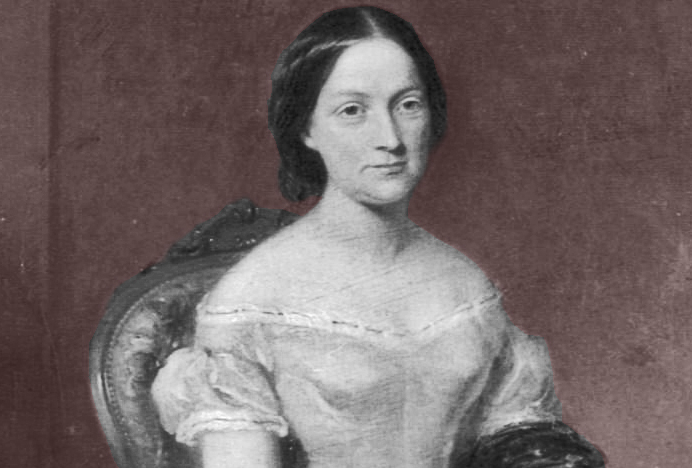
In response to a letter from Frances Wright, who in 1824 had founded the Nashoba settlement in Tennessee as a community where slaves could earn money to buy their liberty, Mary Shelley writes enthusiastically and candidly about the accomplishments of her parents, Mary Wollstonecraft and William Godwin; her admiration for Wright’s antislavery work; and the challenges faced by female activists and intellectuals. Her mother died shortly after giving birth to her; a letter between her parents from the day she was born can be found here.
Arundel. 12 Sepr 1827
You confer on me a very high honor by forgetting for a moment your high & noble views to interest yrself in me; and in addressing me rather on the score of my relations, than myself you touch the right chord to win my attention, & excite my interest. The memory of my Mother has been always been the pride & delight of my life; & the admiration of others for her, has been the cause of most of the happiness I have enjoyed. Her greatness of soul & my father high talents have perpetually reminded me that I ought to degenerate as little as I could from those from whom I derived my being. For several years with Mr Shelley I was blessed with the companionship of one, who fostered this ambition & inspired that of being worthy of him. He who was single among men for Philanthropy—devoted generosity—talent & goodness.—yet you must not fancy that I am what I wish I were, and my chief merit must always be derived, first from the glory these wonderful beings have shed around me, & then for the enthusiasm I have for excellence & the ardent admiration I feel for those who sacrifice themselves for the public good.
If you feel curiosity concerning me—how much more in the refined sense of the word, must I not feel for yrself…a woman, young rich & independent, quits the civilization of England for a life of hardship in the forests of America that by so doing she may contribute to the happiness of her species—Her health fails in the attempt, yet scarcely restored to that, she is eager to return again to the scene of her labours, & again to spend the flower of her life in arduous struggles & beneficent, self sacrificing devotion to others. Such a tale cannot fail to inspire the deepest interest & the most ardent admiration. You do honour to our species & what perhaps is dearer to me, to the feminine part of it.—and that thought, while it makes me doubly interested in you, makes me tremble for you—women are so perpetually the victims of their generosity—& their purer, & more sensitive feelings render them so much less than men capable of battling the selfishness, hardness & ingratitude wh is so often the return made, for the noblest efforts to benefit others.—But you seem satisfied with yr success, so I hope the ill-fortune wh too usually frustrates our best views, will spare to harm the family of love, wh you represent to have assembled at Nashoba…
Do you find the motives you mention sufficient to tame that strange human nature, wh is perpetually the source of wonder to me? It takes a simpler form probably in a forest abode—yet can enthusiasm for public good rein in passion motive benevolence, & unite families? It were a divine sight to behold the reality of such a picture.—
Yet do not be angry with me that I am so much of a woman, that I am far more interested in you than in (except as it is yours) your settlement…Why cannot you come to England?…At least I pray you write again—write about yrself—tell me whether happiness & content repay your exertions. I have found that the first of these blessings can only be found in the exercise of the affections—Yet I have not found mine there—for where moral evil does not interfere—dreadful Death has come to deprive me of all I enjoyed. My life has been not like yours publicly active, but it has been one of tempestuous suffering.—now in a quiet seclusion with my boy & with the companionship of a beloved friend I repose for a few months—& such has been the uncertainty of my fate, that these seem a mighty good torn from cruel destiny & I live in perpetual fear that I shall not be permitted to enjoy it even so long.—
I fully trust that I shall hear from you again—Do not, public spirited as you are, turn from me, because private interests too much opress me. At least tho’ mine be a narrow circle, yet I am willing at all times to sacrifice my being to it, & derive my only pleasure from contributing to the happiness and welfare of others. My sympathy is yours—let me also claim some from you that thus we may establish between us the name of friend.
With the most lively admiration I am yours
Mary Shelley
P.S. I must not forget to say, that I only received yr letter today.—I answer it on the instant.
From Selected Letters of Mary Wollstonecraft Shelley. Edited by Betty T. Bennett. Baltimore, MD: The Johns Hopkins University Press, 1995. 391 pp.


